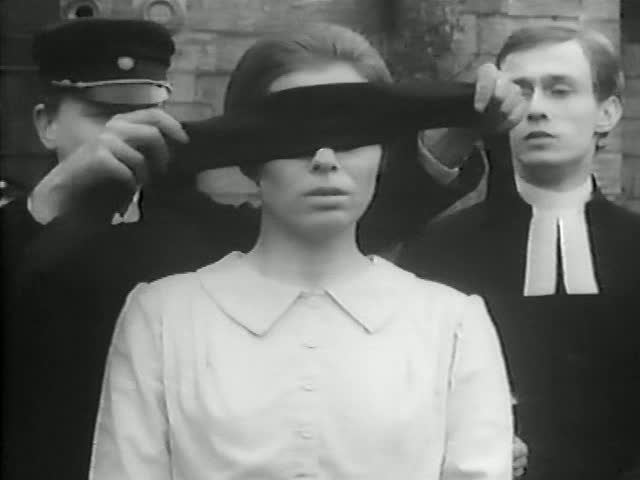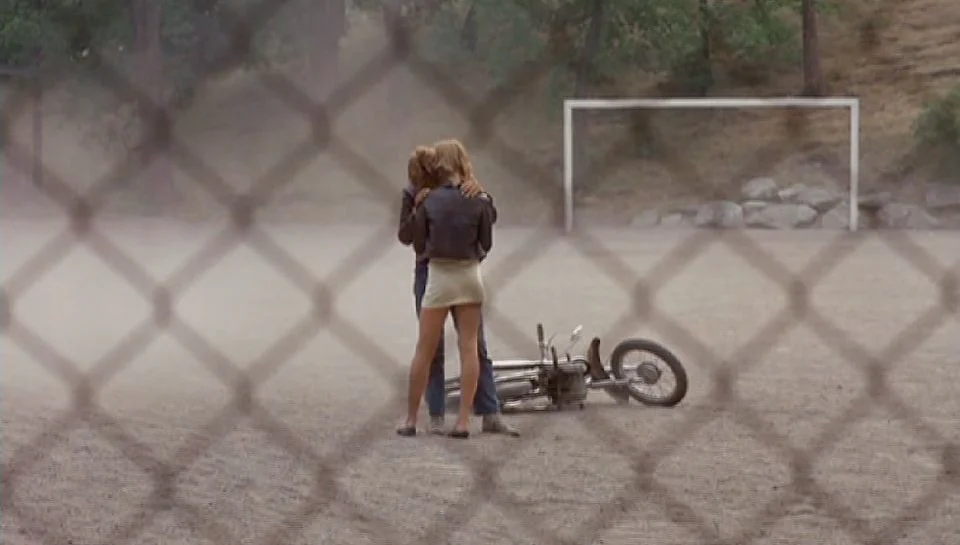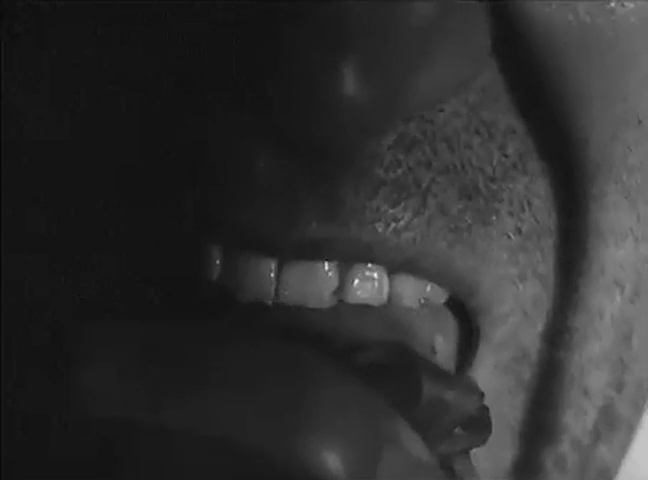“For a handful of coins!”L'uomo più velenoso del cobra [The Man More Venomous Than the Cobra / Human Cobras] (Bitto Albertini, 1971)
May
19

Leslie (Erika Blanc) and Tony Garden (George Ardisson). DP: Emilio Foriscot.
Sweden
Den vita väggen [The White Wall] (Stig Björkman, 1975)
May
17
från Sverige

Monika (Harriet Andersson) (via). DP: Petter Davidson.
An actor, director, or character from Sweden for OP Bramble Jim's Swedish grandma's birthday (happy birthday, Grandma!).
Monika – in spirit the Monika from Bergman's Sommaren med Monika (1953) – is middle-aged, unemployed, and in limbo. We follow her life for a single day.
Yngsjömordet [Woman of Darkness] (Arne Mattsson, 1966)
May
11
Mother's Day
spoiler warning: click to toggle image

Anna Månsdotter (Gunnel Lindblom). DP: Lasse Björne.
A good or bad mother for Mother's Day.
Arranged by his widowed mother, Per Nilsson marries the wealthy judge's daughter Hanna. The wedlock remains unfulfilled as son and mother find satisfaction in each other. Hanna suspects something.
Based on the Yngsjö murder case, which at the time was considered more noteworthy for the mother/son relationship than the resulting tragedy.
En kärlekshistoria [A Swedish Love Story] (Roy Andersson, 1970)
May
7
National Hug Holiday Week

Pär (Rolf Sohlman) and Annika (Ann-Sofie Kylin) hug on a deserted barren soccer pitch. DP: Jörgen Persson.
A hug, romantic or platonic, on the first day of National Hug Holiday Week (USA)
Two teenagers in love become increasingly oblivious of the grey world around them.
Nattlek [Night Games] (Mai Zetterling, 1966)
Mar
8
International Women's Day

Jan (Jörgen Lindström) and his mother (Ingrid Thulin) share a bed while she reads him a bedtime story. DP: Rune Ericson.
A mother for International Women's Day
When returning home to the castle he grew up in, Jan attempts to free himself from the suffocating clutches of his neurotic mother.
This film was the final straw for Shirley Temple; she resigned from the board of the San Francisco Film Festival calling Zetterling's film “pornography for profit”.
Ole dole doff [Eeny Meeny Miny Moe / Who Saw Him Die?] (Jan Troell, 1968)
Feb
10
Scholastica

A reaction shot shows the pupils' faces. While the girls show some sort of remorse, the boys are deadpan. DP: Jan Troell .
A film about teaching on the day of Saint Scholastica, patron saint of Benedictine nuns, education, and convulsive children.
Companion piece to Vilgot Sjöman's 491 (1964). An anti-authoritarian teacher who is plagued by nightmares, slowly unravels.
Ormen: Berättelsen om Iréne [Ormen / The Serpent] (Hans Abramson, 1966)
Jan
29
Lunar New Year – 巳

The German poster. An illustration of a nude woman with a serpent's head. DP: Mac Ahlberg.
Snakes (巳) in celebration of Lunar New Year.
Ormen is an adaptation of the first two chapters of the novel Berättelsen om Iréne (Stig Dagerman, 1945).
In an army barrack, a sergeant is bitten by a snake. A soldier hides the animal in his bag in order to blackmail his superior. Iréne – who works in the same barrack's mess and is the soldier's lover – pushes her mother off a train during a quarrel about the daughter's lack of morals.
Dagerman's novel is a metaphor of Sweden's uncomfortable position in a post-WW2 world (it had declared itself neutral, which by default made it complicit in helping the Nazis). Due to its violence and nudity, outside its homecountry the film adaptation mostly played porn theatres.
Doktor Glas [Doctor Glas] (Mai Zetterling, 1968)
May
27
akvavit

A man (Per Oscarsson) raises a glass and peers though its ribs and liquids. DP: Rune Ericson.
Raggare! [Blackjackets] (Olle Hellbom, 1959)
Apr
3

Bibban, a beaming blonde (Christina Schollin) in a petticoat, at a small bar table smoking a cigarette. There's an half-empty glass and a full ashtray next to her. Just offscreen the object of her smile: a smartly dressed man reaching for his glass. DPs: Frank Dalin & Bertil Palmgren.
Hägringen [Mirage] (Peter Weiss, 1959)
Feb
12

An uncomfortably close close-up up of a man's mouth eating something. Tongue and mouth are visible. He's got stubble. DP: Gustaf Mandal.